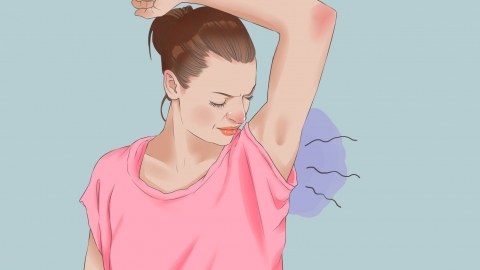What department should I register for excessive earwax (ozena)?
Body odor usually refers to axillary bromhidrosis. Generally, patients with axillary bromhidrosis can choose to visit the dermatology, plastic surgery, medical aesthetics, general surgery, or endocrinology departments according to their needs and the hospital's departmental setup. Detailed analysis is as follows:

1. Dermatology: Axillary bromhidrosis mainly relates to abnormal sweat gland secretion in the armpit and odor caused by bacterial breakdown of sweat, which falls under the category of skin appendage disorders. Dermatologists are skilled in diagnosing such skin-related issues. They can assess the severity of the odor and provide non-surgical treatments like medication or laser therapy, suitable for patients with mild symptoms or those who prefer conservative treatment initially.
2. Plastic Surgery: If patients wish to improve axillary bromhidrosis through surgical methods, such as excising the apocrine gland tissue, plastic surgery is an appropriate choice. Plastic surgeons possess specialized surgical techniques to remove diseased tissue while minimizing surgical trauma and focusing on postoperative aesthetic recovery.
3. Medical Aesthetics: In some hospitals, the medical aesthetics department also offers diagnosis and treatment for axillary bromhidrosis, particularly emphasizing minimally invasive treatments such as microwave therapy or radiofrequency therapy. These treatments achieve odor elimination by damaging the function of the axillary apocrine glands and are characterized by minimal trauma, rapid recovery, and high postoperative aesthetic satisfaction.
4. General Surgery: In some general hospitals where plastic surgery or medical aesthetics departments are not separately established, surgical treatment for axillary bromhidrosis may be handled by the general surgery department. General surgeons can perform traditional apocrine gland removal surgeries, effectively resolving underarm odor issues.
5. Endocrinology: A few cases of axillary bromhidrosis might be related to endocrine disorders, such as increased sweat gland secretion caused by hormonal changes during puberty or abnormal thyroid function. If patients also experience other endocrine-related symptoms, such as irregular menstruation or abnormal weight changes, they can initially visit the endocrinology department to investigate potential endocrine factors before receiving targeted treatment.
Prior to visiting, patients can consult the hospital's official website or contact them via phone to understand the specific scope of each department's services and choose the appropriate department based on their symptoms and treatment needs. During treatment, maintaining clean and dry underarms, wearing loose and breathable clothing, and reducing bacterial growth are important measures to help alleviate odor issues.






